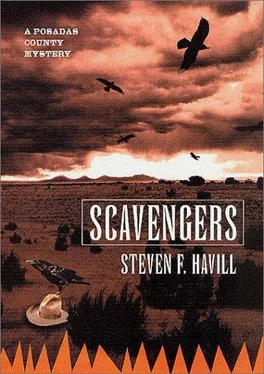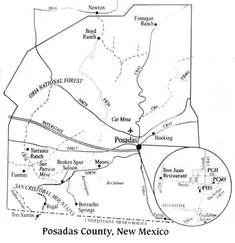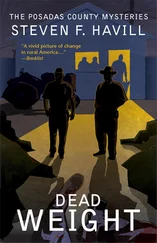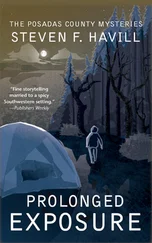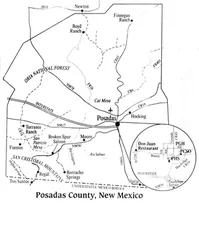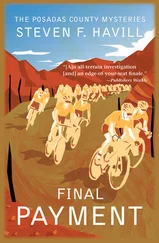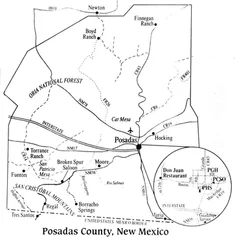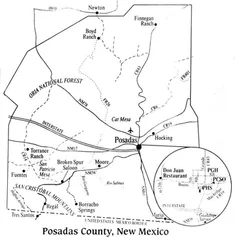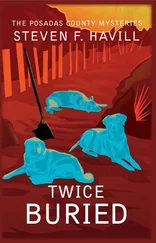Steven Havill - Scavengers
Здесь есть возможность читать онлайн «Steven Havill - Scavengers» весь текст электронной книги совершенно бесплатно (целиком полную версию без сокращений). В некоторых случаях можно слушать аудио, скачать через торрент в формате fb2 и присутствует краткое содержание. Год выпуска: 2002, ISBN: 2002, Издательство: Minotaur Books, Жанр: Полицейский детектив, на английском языке. Описание произведения, (предисловие) а так же отзывы посетителей доступны на портале библиотеки ЛибКат.
- Название:Scavengers
- Автор:
- Издательство:Minotaur Books
- Жанр:
- Год:2002
- ISBN:9780312288334
- Рейтинг книги:3 / 5. Голосов: 1
-
Избранное:Добавить в избранное
- Отзывы:
-
Ваша оценка:
- 60
- 1
- 2
- 3
- 4
- 5
Scavengers: краткое содержание, описание и аннотация
Предлагаем к чтению аннотацию, описание, краткое содержание или предисловие (зависит от того, что написал сам автор книги «Scavengers»). Если вы не нашли необходимую информацию о книге — напишите в комментариях, мы постараемся отыскать её.
Scavengers — читать онлайн бесплатно полную книгу (весь текст) целиком
Ниже представлен текст книги, разбитый по страницам. Система сохранения места последней прочитанной страницы, позволяет с удобством читать онлайн бесплатно книгу «Scavengers», без необходимости каждый раз заново искать на чём Вы остановились. Поставьте закладку, и сможете в любой момент перейти на страницу, на которой закончили чтение.
Интервал:
Закладка:
Before the gray-brown hills and mesa flanks began to show the effects of haphazard boring and blasting, Tres Santos had concentrated on its central blessing-the Río Plegado. River might have been an exaggeration. The Plegado’s trickle of water followed a circuitous path down the flanks of the limestone hills, through the bolson of the valley before finally disappearing underground.
After the brief flurry of the mines, residents of Tres Santos had subsisted from the fields irrigated by the Plegado and by the artistry of two extended families of wood-carvers-Roman Diaz, his eight children and their families, and the nine progeny of his father-in-law, the late Domingo Eschevarria. Eschevarria had been the first to understand that the thick, contorted stumps of Chihuahuan desert shrubs were the well-spring for a world of whimsically carved creatures. Tourists bought them by the hundreds, as fast as the Eschevarria and Diaz chisels could turn the figurines loose from the tough, gnarled wood.
Situated six miles from the border and on the main hard-packed dirt and gravel road to Janos and the interior, Tres Santos was a tourist’s delight. Remote enough to be Old Mexico, the village gave tourists the impression that they might be the very first to have discovered the place. The dirt road wound down into the small valley, itself just enough of a depression in the desert that the horizon was always within reach.
The galleria of cottonwood, elm, and stunted walnut followed the river, and the lane itself crossed the water in a half dozen places, the flow rarely wide enough to splash both front and rear tires simultaneously.
The invention of the automobile had had at least one marked impact on Tres Santos. Over the years, derelict autos had been dumped into the river, forced up against the eroding banks on the outside of strategic bends. The automotive riprap worked pretty well until a cloudburst upstream created a bulldozer of chocolate-colored water powerful enough to rearrange the whole mess.
Estelle eased the van out of the fourth river crossing and turned sharply right, bouncing up and out of the riverbed. A high adobe wall greeted them. “I don’t want to talk to anybody,” Teresa said as they neared the gate. Ceramic letters over the arch announced Casa Diaz , and Estelle saw three vehicles in the driveway close to the portico. The one nearest the road was a familiar tan Toyota 4-Runner with government plates. “Maybe later,” Teresa added.
Estelle understood her mother’s reluctance to lay on the horn, bringing her neighbors out in force. The Diaz family, from the sixty-five-year-old Roman and his wife Marta, down through all eight children to little Tinita, included twenty arms powered by an endless need to embrace and hug, with back-slapping and rib-nudging thrown in.
If Teresa was to enjoy a few quiet moments at her former home, it would have to be before the village knew of her presence. And once the Diaz family knew, the rest of the community was sure to follow.
They drove along beside the high wall, following the curve of it toward a grove of aging cottonwoods whose roots were just a bit too far from the current riverbed. The trees looked as if they were patiently waiting for a spring flood to change the course of the Plegado back to their benefit.
Teresa Reyes’ home was basically four rooms with a screened porch across the back. The tree nearest the front door had grown until its roots crushed upward against the stone foundation, sending large cracks radiating up through the wall, around the narrow, deeply cased window, and up to the vigas. Estelle turned off the lane, drove across the close-cropped weeds of the yard and stopped as close to the front door as she could.
“This place,” Teresa said enigmatically. Estelle glanced across at her mother. Teresa propped her chin on her fingers, elbow on the door rest. She regarded the little building. The crow’s-feet at the corners of her eyes deepened.
“It’s held up pretty well,” Estelle said. Except for a brief time when it had been rented by one of the Diaz sons and his bride, the place had been standing empty for three years. When Teresa had fallen at the back porch step and broken her left hip, she had moved from Tres Santos to Posadas. And when her daughter’s family had gone to Minnesota for a brief interlude, Teresa had traveled with them.
“What do you want to do with it?” Teresa asked.
The question took Estelle by surprise, but she knew that her mother didn’t mean the cosmetic cracks in the plaster, the cobwebs, or the mouse turds.
“I haven’t thought about it,” she said. “And it’s not my decision.”
“I talked to Roman last week,” Teresa said. She pointed to the north. “Those trees over there died. You can see the school from here now.” Sure enough, the small cinderblock building that housed the current iteration of the district school stood bleak and gray at the end of a field of rusting derelict cars. “It was better before the river took it out,” she said, referring to the small, neat adobe building where she had taught for close to forty years before the Plegado had gotten angry after a cloudburst and straightened out a bend or two.
“What did Roman say?” Estelle asked. The telephone was among the many modern luxuries, gadgets, and annoyances that Teresa eschewed. Its impersonal nature somehow offended her. No telephone lines ran to the tiny house standing before them, and Estelle could imagine how serious Teresa’s concerns must have been to prompt her to make a telephone call to Roman-and an international call at that.
“About the house?”
“Yes.”
“Well,” Teresa said, and shrugged. “It’s something that has to be decided sometime.”
“What do you want to do with it, Mamá ? ” She could see by the expression on her mother’s face that there was no easy answer, and she didn’t pursue the question. She pulled the door handle. The aroma of weeds crushed under the tires of the van was pungent. Her mother sat quietly. Estelle took a deep breath, trying to place herself on this tiny patch of dried Mexico. As a child, the valley had seemed limitless, the stream in constant conversation with itself, the hills studded with secrets. The squat, square adobe house was snug and cool, the supply of companions constant and close at hand. That was a different lifetime.
Even though the van was now parked a scant thirty miles south of Posadas, Estelle had visited her mother’s house in Tres Santos no more than a half dozen times in the past three years-and more out of courtesy to the Diaz family, who kept an eye on the place, than anything else.
“Do you want to go inside?”
“Oh, I don’t know,” Teresa said. “The dust will make me cough.”
“Let me go see,” Estelle said, and stepped out of the van. Three steps carried her to the shade of the small front porch, itself no more than four feet deep and eight feet long. Estelle looked at the cracks in the plaster finish that she and her husband had applied five years before. She rested her hand on the warm adobe and looked up at the web-tangled eaves. She could smell the soft musty aroma forced out of the adobe blocks by the high February sun. The front door was without lock or metal latch. A carved block of wood turned into a slot in the jamb, snugging the door against the frame. The gray wood had shed most of its paint. She ran her hand over the sunflower that her great-uncle had carved in the slab wood and saw that traces of yellow enamel still clung to the petal impressions.
The other door of the van opened and her mother waved a hand. “Just go ahead,” she called. “I might get there, and I might not.”
By the time Teresa had managed to get out of the vehicle, Estelle was at her elbow.
Читать дальшеИнтервал:
Закладка:
Похожие книги на «Scavengers»
Представляем Вашему вниманию похожие книги на «Scavengers» списком для выбора. Мы отобрали схожую по названию и смыслу литературу в надежде предоставить читателям больше вариантов отыскать новые, интересные, ещё непрочитанные произведения.
Обсуждение, отзывы о книге «Scavengers» и просто собственные мнения читателей. Оставьте ваши комментарии, напишите, что Вы думаете о произведении, его смысле или главных героях. Укажите что конкретно понравилось, а что нет, и почему Вы так считаете.
